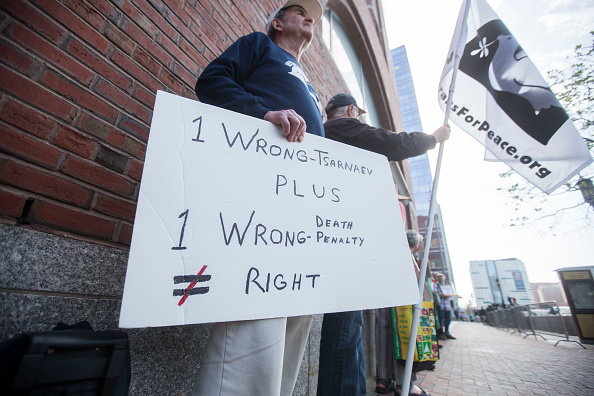Only jurors who were open to the death penalty were chosen for the Tsarnaev trial


On Friday, Dzhokhar Tsarnaev was sentenced to the death penalty for his role in the Boston Marathon bombing. It's a verdict that left many Bostonians surprised; though 60 percent of Americans said they supported the death sentence of Tsarnaev, a Boston Globe polled showed that just 15 percent of native Bostonians did, citing concerns that ranged from the possibility of Tsarnaev being treated as a martyr to the idea that the death sentence is a greater punishment for a 21-year-old.
What's the explanation? The New York Times turned up an interesting detail: Only jurors who were "death qualified" — that is, open to the death penalty — were considered for the Tsarnaev trial. Anyone who expressed opposition to the death penalty was disqualified.
The jurors issued a definitive verdict: convictions on all 30 charges, including the 17 that carried the death penalty, and the maximum sentence. Tsarnaev may still appeal the verdict.
The Week
Escape your echo chamber. Get the facts behind the news, plus analysis from multiple perspectives.

Sign up for The Week's Free Newsletters
From our morning news briefing to a weekly Good News Newsletter, get the best of The Week delivered directly to your inbox.
From our morning news briefing to a weekly Good News Newsletter, get the best of The Week delivered directly to your inbox.
A free daily email with the biggest news stories of the day – and the best features from TheWeek.com
Scott Meslow is the entertainment editor for TheWeek.com. He has written about film and television at publications including The Atlantic, POLITICO Magazine, and Vulture.
-
 The countries around the world without jury trials
The countries around the world without jury trialsThe Explainer Legal systems in much of continental Europe and Asia do not rely on randomly selected members of the public
-
 The Supreme Court case that could forge a new path to sue the FBI
The Supreme Court case that could forge a new path to sue the FBIThe Explainer The case arose after the FBI admitted to raiding the wrong house in 2017
-
 ABC News to pay $15M in Trump defamation suit
ABC News to pay $15M in Trump defamation suitSpeed Read The lawsuit stemmed from George Stephanopoulos' on-air assertion that Trump was found liable for raping writer E. Jean Carroll
-
 Judge blocks Louisiana 10 Commandments law
Judge blocks Louisiana 10 Commandments lawSpeed Read U.S. District Judge John deGravelles ruled that a law ordering schools to display the Ten Commandments in classrooms was unconstitutional
-
 Swearing in the UK: a colourful history
Swearing in the UK: a colourful historyIn The Spotlight Thanet council's bad language ban is the latest chapter in a saga of obscenity
-
 ATF finalizes rule to close 'gun show loophole'
ATF finalizes rule to close 'gun show loophole'Speed Read Biden moves to expand background checks for gun buyers
-
 Hong Kong passes tough new security law
Hong Kong passes tough new security lawSpeed Read It will allow the government to further suppress all forms of dissent
-
 France enshrines abortion rights in constitution
France enshrines abortion rights in constitutionspeed read It became the first country to make abortion a constitutional right



